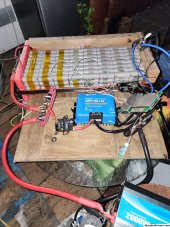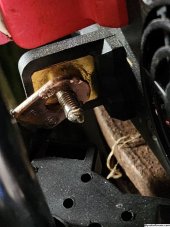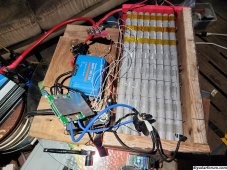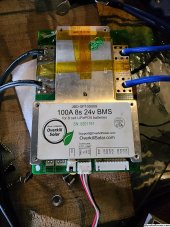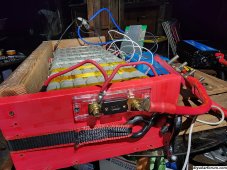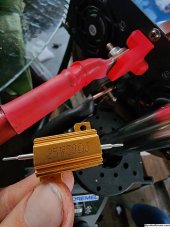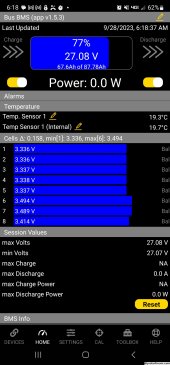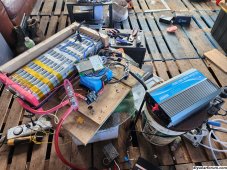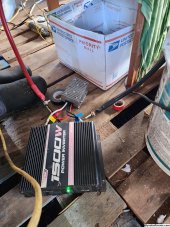SolarHawaii
New Member
- Joined
- Jun 28, 2022
- Messages
- 19
Yesterday randomly my inverter turned off. Wouldn't turn back on so I disconnected held button down and then waited 30 minutes hoping it would reset. When I went to reconnect, I used an old resistor on the negative terminal of the inverter and there was a huge spark. Melting the metal on terminal which i them had to grind down, this happened a couple times then i opened inverter and found the fuses blown and replaced them. So I assumed it was the BMS balance cables maybe twisted or just not securly fastened. So I disassembled the entire system and rewired everything best I could, its unfinished obviously but need to figure out how to fix this short circuit first. Frustrating is an understatement, going on 13 hours on this fricken project. BMS is reading fully charged, and I'm out of ideas while my freezer slowly melts.



